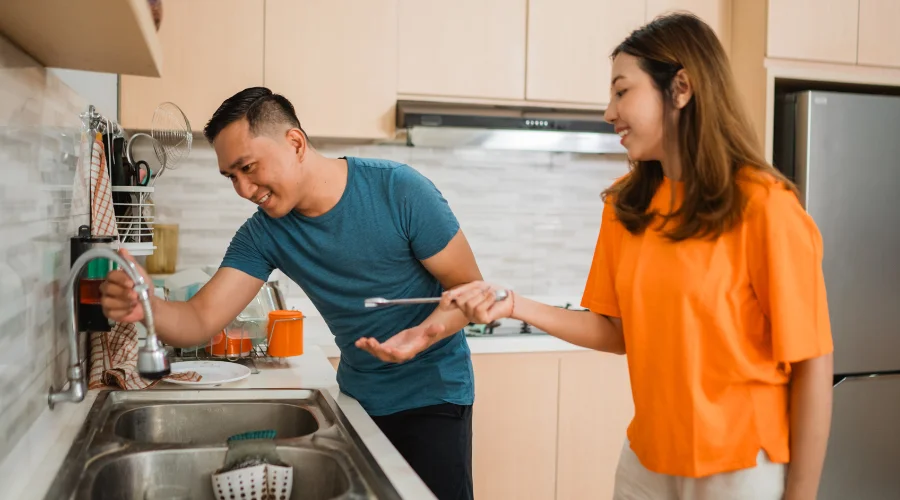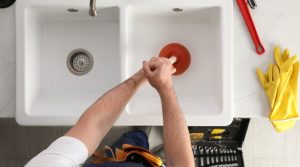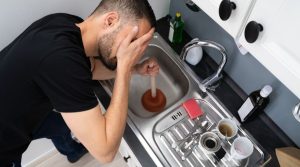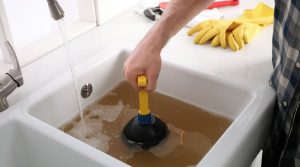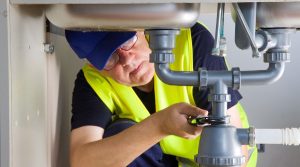Plumbing is super essential for your home to work well. It’s like the captain of your water and drainage systems. While you can fix minor plumbing issues yourself, sometimes you see signs that tell you it’s time to call a pro plumber. This blog post is about “Plumbing 101,” where we look at seven signs telling you it’s plumber time. These signs tell you to stop DIY and call a plumber for help.
Knowing these signs is essential to keep your home’s plumbing working well and strong. Experience the expertise of CBJ Passaic Plumbers, a team of licensed professionals in NJ dedicated to resolving plumbing issues in both residential and commercial spaces. Our commitment to top-notch service and continuous improvement ensures reliable assistance for your needs
Plumbing 101: What is Plumbing?
Plumbing is like the heart of a house. It’s a system of pipes, drains, and fixtures that bring clean water in and remove waste. Imagine it as the house’s circulatory system. Plumbing has two main parts: the water supply system, which gives you safe water, and the drainage system, which removes dirty water. So, plumbing is like a silent hero that keeps our homes clean and functional. It makes sure water flows smoothly for all our daily needs. Consider it as the quiet champion who subtly makes sure our living environment stays healthy and comfortable.
Water Supply System
When a plumber starts a job, they carefully look at the problem. The plumber checks everything, whether it’s a leak, clog, or something not working right. This first step is super important because it guides the whole fixing process. The plumber uses their sharp eyes and knowledge to determine what’s causing the issue, even the tiny details others might miss. With this understanding, the plumber creates a plan to fix the problem. So, this beginning step is like setting the path for a successful plumbing fix, ensuring they get to the real issue and solve it well.
Drainage System
The drainage system is like the cleanup crew for your home. Its job is to take away dirty water quickly. When you see problems like clogged drains, slow drains, or bad smells from sinks, it’s a sign that something might be wrong with the drainage system. Ignoring these indicators may result in more severe issues, like broken pipes or sewage backups. That’s why you must call a plumber when you notice these issues. Getting help early solves the immediate problems and stops them from worsening, keeping your home’s plumbing system in good shape.
Interior Plumbing: The Kitchen
The kitchen is busy in every home, and its plumbing works significantly because we use it so much. If you notice things like a faucet that keeps leaking, a clogged sink, or a garbage disposal that’s not working right, don’t ignore them. These signs might mean more significant problems with the plumbing that could worsen if you don’t fix them. That’s when you need a good plumber. They know all about kitchen plumbing and can determine what’s wrong and how to fix it. By getting help quickly, the plumber ensures your kitchen’s plumbing works well for all your daily activities.
Interior Plumbing: The Bathroom
Bathrooms are essential for personal hygiene but can have plumbing problems. Annoying things like leak faucets, toilets that keep running, or slow drains can mess up your daily routine. Not only is it uncomfortable, but it also wastes water and might even damage things. That’s when you need the help of professional plumbers. They are experts at figuring out what’s wrong with the bathroom plumbing and fixing it. By letting the professionals handle these problems, you make sure your bathroom works smoothly, making your daily routine calm and stress-free.
Tips for Maintaining Your Plumbing
Regular maintenance is vital to preventing plumbing emergencies. Simple practices like avoiding dumping grease down the drain, using drain screens, and checking for leaks may prolong the life of your plumbing system. Additionally, scheduling periodic inspections with a plumber can catch potential issues before they escalate.
- Mindful Disposal: Avoid dumping grease or cooking oil drained away. Instead, gather them and get rid of them in a different container. Grease solidifies over time and can lead to clogs, impacting the smooth flow of water through your pipes.
- Install Drain Screens: Invest in drain screens for sinks and showers. These inexpensive devices capture hair, soap scum, and debris, preventing them from entering and blocking your pipes. Regularly cleaning these screens ensures their effectiveness.
- Leak Vigilance: Routinely check for leaks throughout your home, including under sinks, toilets, and nearby appliances. Addressing minor leaks promptly can prevent water damage, mold growth, and escalating plumbing issues.
- Periodic Inspections: Schedule regular inspections with a qualified plumber. These professionals can identify potential problems such as corroded pipes, hidden leaks, or worn-out fixtures before they turn into major problems, saving you both time and money.
- Water Softening Solutions: Consider installing a water softener if your area has hard water. Minerals found in hard water can accumulate in
- pipes, reducing efficiency. Water softeners help mitigate mineral deposits, improving your plumbing system’s overall health and performance.
Understanding Plumbing 101 shows how important it is to care for this complex system. If you ignore minor signs of plumbing issues, they can turn into big and expensive problems. If you notice any of the seven signs we discussed, it’s crucial to act fast – call a plumber. Getting help in time not only keeps your home safe but also makes sure your plumbing works well. Remember, spending a bit on professional plumbing services now helps avoid big problems later. Taking care of your plumbing is like a secret to having a reliable and problem-free system, keeping your home safe for a long time.

